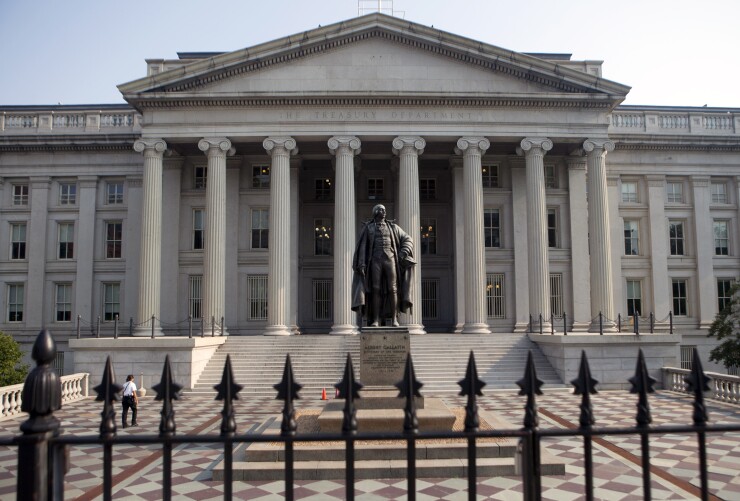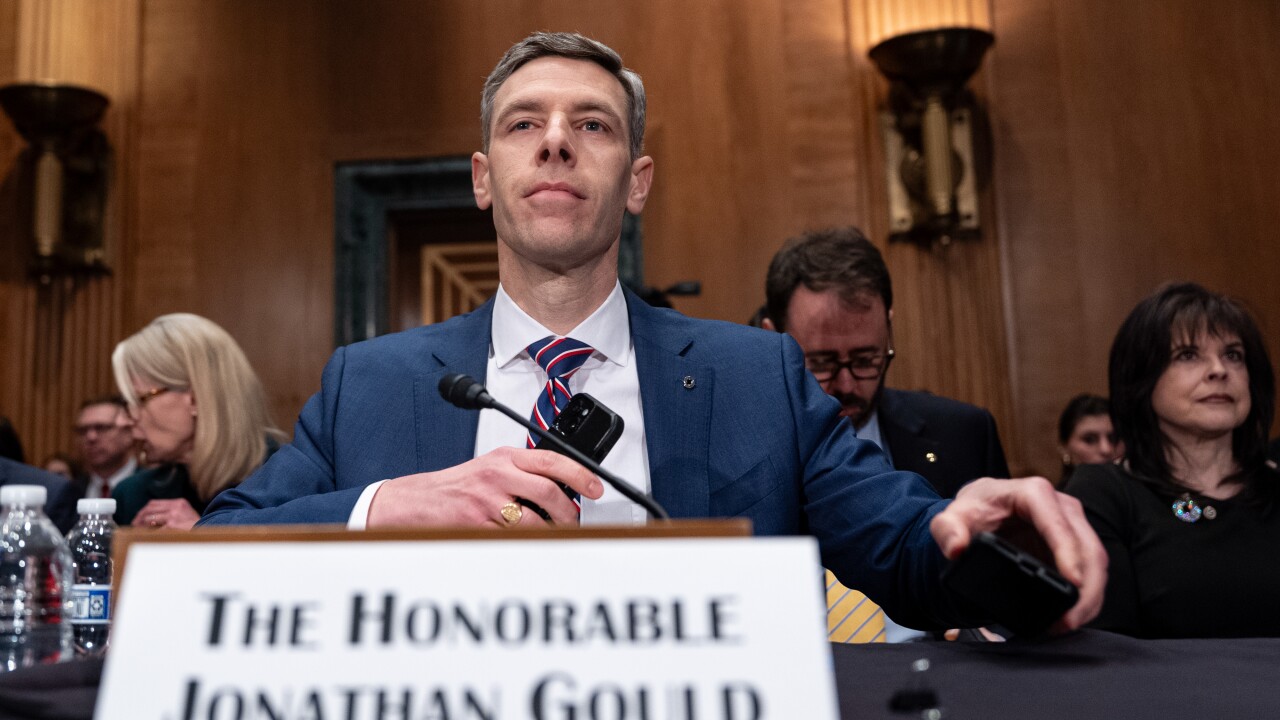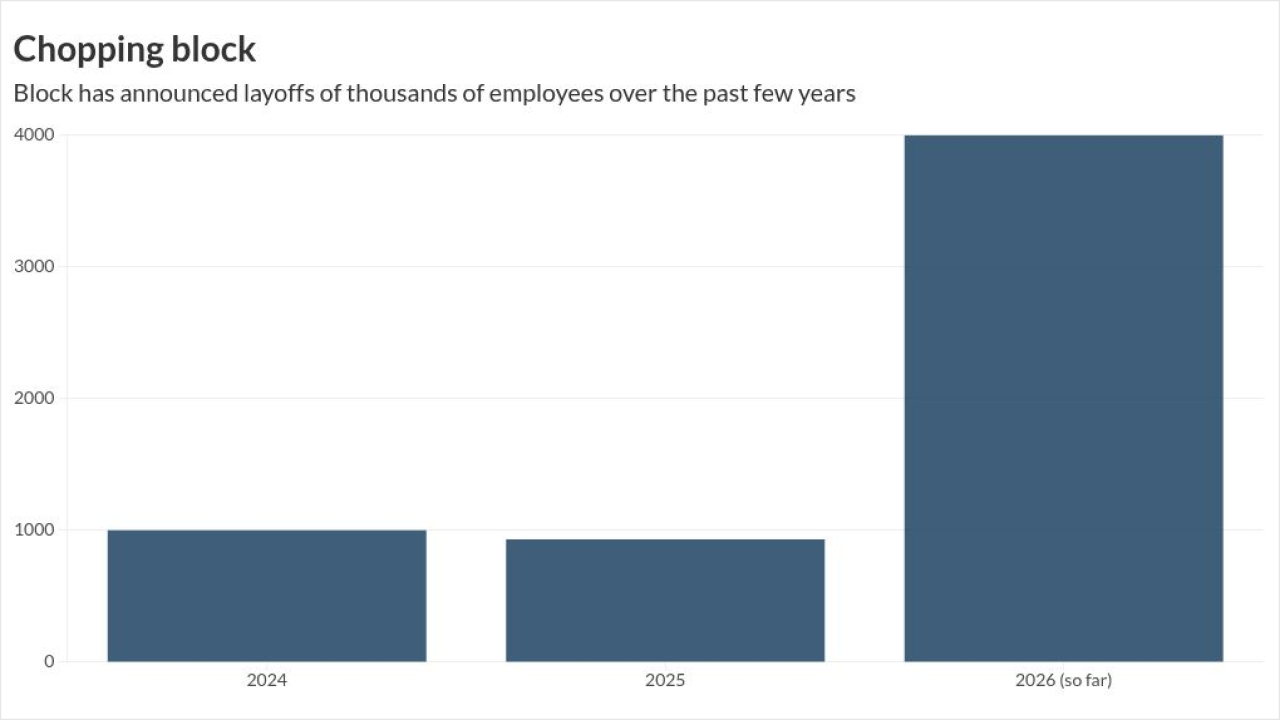In a November
First, the report recommends that the council consider the likelihood of a firm’s failure when deciding whether to designate it as a “systemically important financial institution,” or SIFI, and thus subjected to enhanced regulation and oversight by the Federal Reserve. But if the FSOC waits until a systemically important nonbank is likely to experience material distress, it’s too late.
Consider American International Group. If the council designated AIG as systemically important in 2007, that would have done little to prevent its failure, in part because it takes years to develop and apply these standards. If the standards were applied in the early 2000s — when the company was healthy and no one thought it was going to experience distress — it’s possible that AIG may not have failed during the crisis or that its failure would have been less severe.

It’s not even clear a method exists to accurately and consistently predict the expected chance of failure at a range of different financial institutions. The Treasury report doesn’t suggest how to predict the likelihood of failure or what chance of failure would be necessary to warrant designation.
If the explanation above isn’t clear enough, simply consider the implications of this quote included in the report to justify the recommendation: “Material financial distress at a nonbank financial company does not pose a threat to U.S. financial stability if the company will not experience financial distress.”
According to this approach, if the FSOC had existed back in 2004, regulators would not have designated a then-healthy Lehman Brothers. Instead, they would have argued that material financial distress at Lehman Brothers did not pose a threat to U.S. financial stability because Lehman Brothers would not experience financial distress.
The enhanced prudential regulations help improve an institution’s resiliency to shocks and stress in the financial system. The regulations aren’t a post-hoc antidote to heal a failing firm; they are all pieces of systemic risk insurance. A homeowner can’t buy fire insurance when the house is already in flames.
The second troublesome recommendation in the report calls for the FSOC to spend its time looking at financial sector activities, products and industries broadly, instead of designating individual systemically important nonbank financial companies.
This is a false choice. The FSOC can and should be doing both, as both approaches help identify and mitigate systemic risk. Certainly, products and activities within specific industries or across the financial sector can threaten financial stability. Accordingly, the FSOC previously conducted useful reviews of the
Focusing on activities and products, however, is no substitute for subjecting an individual firm to stronger regulations and oversight if material distress at the firm could threaten financial stability. A financial company’s systemic importance may not stem from any one activity or its offering of any one product; therefore, an activities-based industry review and a mere policy recommendation to a primary regulator is not enough. Firms whose failure would threaten financial stability should be regulated on a consolidated basis and face the strong capital and liquidity requirements, stress testing, living wills and other enhanced standards that come with a designation. Furthermore, there is a strong case to be made that it’s easier for regulators to preemptively
Accordingly, the report recommends that a designation only be undertaken as a last resort; however, that attitude implies that the designation process is a simple switch that can be flipped at will. A sound designation process is time consuming and requires constant vigilance. Even if the FSOC isn’t designating firms every year, the designation process is ongoing, with
If the next financial crisis is sparked or aggravated by an under-regulated nonbank financial company, those that lose their homes or jobs are going to wonder why. Telling someone that the next Lehman Brothers wasn’t facing enhanced supervision because regulators didn’t think the company would fail — or because they were monitoring an array of products and activities instead — is not going to be a sufficient reply.





